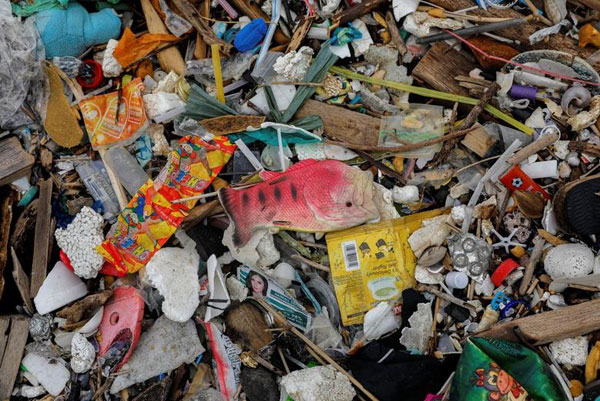The World Bank said as much as $890 million, or roughly P43.3 billion, is lost to the Philippine economy every year as single-use plastics are discarded rather than recovered and recycled, representing a significant untapped business opportunity if key market barriers can be addressed.
A series of World Bank Group studies launched yesterday found that less than a quarter of plastics available for recycling in the Philippines, Malaysia and Thailand are being recycled into valuable materials.
According to the report, Market Study for the Philippines: Plastics Circularity Opportunities and Barriers, the total material value that could be unlocked from plastic recycling in the Philippines is $1.1 billion per year.
However, the report said only 22 percent of the total material value of plastics, equivalent to $246 million per year, is currently unlocked, as the Philippines only recycled about 28 percent of the key plastic resins in 2019.
“This results in $790 million to $890 million/year of potential material value that is lost to the Philippine economy,” the report said.
According to the report, the Philippine plastic recycling industry faces similar challenges as other Southeast Asian countries, but it also experiences unique obstacles to its profitability and growth.
“These challenges explain the comparatively large recycling capacity gap in the Philippines across all four resins combined in this study and why the Philippines is a net exporter of plastic scrap,” it said.
While the studies found that barriers to plastic recycling are unique to each country, there are common actions that governments and industries could take to help Malaysia, the Philippines and Thailand unlock additional material value.
Recommendations include increasing sorting efficiency of post-consumer collection of plastics; setting recycled content targets across all major end-use applications; mandating “design for recycling” standards for plastics, especially for packaging; encouraging increase in recycling capacities (mechanical and chemical); implementing industry-specific requirements to increase waste collection rates; and restricting disposal of waste plastics in landfills and phase-out non-essential plastic items.
“Mismanaged plastic waste across Malaysia, the Philippines, and Thailand is threatening key economic sectors such as tourism and fisheries, and impacting livelihoods and infrastructure, but there is strong government momentum in these countries to identify critical policies, and craft roadmaps to strengthen demand for all recycled plastic resins, level the playing field for global and domestic companies, and help drive a circular economy for plastics,” said Ndiamé Diop, World Bank country director for Brunei, Malaysia, Philippines and Thailand.
“These studies show that there is an untapped opportunity to reap environmental and economic benefits with clear and complementary interventions from the private and public sector,” Diop said. – Angela Celis




